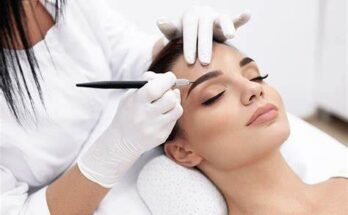Your body critically requires the hormone testosterone. If you’re a gym fanatic who works out consistently, testosterone booster has much to offer. It largely contributes to your strength and masculinity as a man. And while your rising levels of this wonder hormone may be at their highest in your teens and early 20s, it’s critical to accept the depressing reality that nothing lasts forever.
Though your testosterone levels determine your virility, they begin to fall beyond the age of 30 at a rate of 1.6 percent annually. Numerous healthy elements in testosterone booster ingredients can help you increase your testosterone levels. Continue reading as we go over them below.
ZMA

One of the most important testosterone booster ingredients is ZMA and comprise of the following elements; Zinc, magnesium aspartate, and vitamin B6 comprise the natural mineral supplement known as ZMA. Your muscles and immune system are supported by zinc.
Magnesium aids in sleep regulation and affects metabolism and muscular health. B6 might increase vigour. Increases in these three nutrients are said to increase muscle strength and endurance, hasten muscle recovery, and enhance sleep quality.
Zinc
Zinc aids in the digestion of food and other nutrients by enzymes. Additionally, it is crucial for enzymes that create proteins. In addition to being present in some foods, supplements and even some cold medicines include it.
A low level of testosterone might result from a zinc shortage. It is unclear why a zinc deficiency affects testosterone levels. The mineral may impact the testosterone-producing cells in the testes. In our bodies, this trace mineral plays several significant roles. It contributes to preserving bone and muscle strength and a normal sex drive. Zinc is frequently present in testosterone boosters since a zinc shortage can result in a low testosterone level. Remember that zinc won’t increase your testosterone if you don’t have a deficiency.
DHEA
DHEA is known as Dehydroepiandrosterone in full. That probably could be more useful, but the fun part is about to begin. It is a testosterone hormone produced in the adrenal glands. Cholesterol is transformed into DHEA throughout this process. DHEA levels reach their peak in the body between the ages of 15 and 19 for women and 20 to 24 for men. After that, they gradually fall with aging, reaching just 10 to 20 percent of their peak levels by the time you are 70 to 80 years old. DHEA supplements, which are available as oral tablets or topical creams, are therefore in demand.
Although the whole range of DHEA’s responsibilities has yet to be fully understood, there has been a significant advancement in demonstrating what it accomplishes. Your body can first transform it into estrogen and testosterone. More about this, particularly testosterone, is in the section below. A precursor to testosterone is DHEA. DHEA can be used by the body to create testosterone. That distilled reasoning suggests that taking DHEA tablets will raise your testosterone levels.
Vitamin
Testosterone is crucial to male growth, health, and development. Therefore, it is important to maintain testosterone levels at their optimal level. How do we stop the hormone from progressively declining around age 30 or older and continuing after that? Testosterone boosters are typically the first line of defense when testosterone reduction starts to become noticeable, but vitamins can also provide support.
Vitamin D
Vitamin D is popularly known as the “sunshine vitamin,” and increases LH (luteinizing hormone) synthesis and Leydig cell activity. These two factors regulate the creation and release of testosterone. In essence, vitamin D stimulates the Leydig cell and luteinizing hormone to increase testosterone production volumes, which aids in restoring hormone levels.
Additionally, vitamin D decreases the quantity of SHBG (a protein that binds to testosterone and decreases the amount of testosterone available in the body). As a result, the body produces more free testosterone. We can obtain our dose from fatty fish, egg yolks, milk, orange juice, and tanning.
Vitamin B6
Supplements frequently contain vitamin B6, which has benefits beyond merely bettering general health. I discovered that vitamins contribute to the synthesis of androgens like testosterone. Luteinizing hormone, which encourages the testes to produce more testosterone, can be produced more readily by supplementation. Excellent food sources of vitamin B6 are potatoes, chicken, tuna, chickpeas, and white fish.
Vitamin B12
Vitamin B12 aids in the synthesis of testosterone, similar to vitamin B6. Scientists are still determining how it accomplishes this, though. The creation of red blood cells, which enhances physical performance and indirectly increases testosterone production, is supported by B12 in addition to its direct role in testosterone synthesis. Vitamin B12 is found in animal products such meat, poultry, and seafood. B12 can be found in dairy products, some plant-based diets, and eggs.
Vitamin C
Vitamin C is another undirect factor that increases testosterone and is a great testosterone booster. The antioxidant characteristics of the vitamin enhance sperm health generally, guard against sperm destruction, and possibly boost sperm motility and count. Additionally, it shields Leydig cells from oxidative stress and lowers cortisol levels, improving testosterone production.
In addition, the vitamin helps to make collagen, which elevates testosterone levels and enhances blood flow to the testicles. Other fruits and vegetables, such as broccoli, strawberries, and oranges, are also good sources of vitamin C, which is required daily.
Fenugreek
Trigonella foenum-groecum L., an annual plant, is indigenous to North Africa and India. It is produced and eaten globally. The fenugreek plant has long been a natural cure for various diseases. Fenugreek was given to pregnant women in ancient Rome to relieve labor pains, and traditional Chinese medicine used it to cure leg weakness and swelling. Fenugreek leaves, and seeds’ aroma and complex flavor have been described as nutty, sweet, and bitter. Many of the fenugreek plant’s therapeutic benefits are thought to be caused by various potent chemicals that the plant possesses.
For instance, the seeds are abundant in saponins and coumarins, two compounds linked to several health advantages, including lowering cholesterol and blood sugar levels. Fenugreek supplements often comprise concentrated extracts from fenugreek seeds or fenugreek seed powder because the seeds have significant concentrations of powerful chemicals.
Supplements containing fenugreek are frequently utilized by those looking for a natural way to raise their testosterone levels. Although some people prefer alternatives like herbal supplements, hormone replacement therapy is typically used to address this problem.
Also Read: What are the Benefits of Using Testosterone Booster?
Final Thought
These are some of the more well-known testosterone booster components, albeit by no means the complete list. Before choosing a certain brand, we suggest you do some research because there are differences in ingredient quality across the board. Remember that at least a few of the chemicals on this list are present in most testosterone boosters. The ingredient lists for the two brands may occasionally match, but the dosages are frequently different. Finding the best brand for you may need trial and error because each person’s body responds differently.




